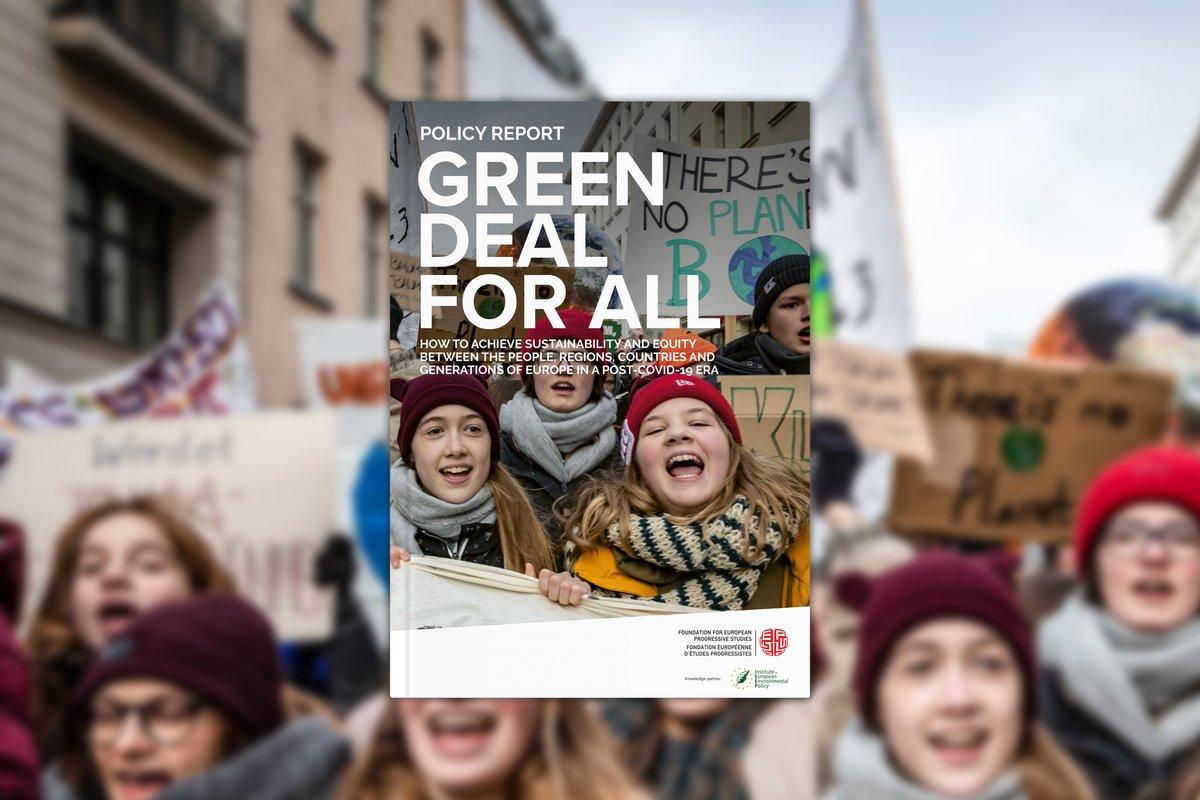AUTHORS: Thorfinn Stainforth – Céline Charveriat – Tsvetelina Filipova – Eloïse Bodin
This policy report produced by IEEP for the FEPS foundation analyses how to achieve sustainability and equity between the people, regions, countries and generations of Europe in a post-COVID-19 era.
As the coronavirus (COVID-19) pandemic is still unfolding, the relevance of the European Green Deal and its potential role in recovery plans are being heavily debated.
While some have argued that it needs to be delayed or abandoned altogether, this paper argues that the Green Deal becomes an even more essential policy in the new context of recovery from the recession and provides an unintended opportunity not to return to the past and instead “build back better”. Conversely, the paper warns against an unsustainable recovery pathway which would waste precious public funds on shoring up the fossil fuel economy and lock Europe’s youth and future generations into destructive high-carbon and unsustainable pathways.
The current sanitary crisis has opened up a new understanding of the interrelation between humans, wildlife and our shared ecosystems, and the meaning of well-being and healthy living. Interestingly, concepts such as the ‘One Health’ approach are being elevated in discussions as the pandemic profoundly challenges how we establish priorities and structure our societies.
New ways of living and working are arising from this highly disruptive, large-scale and unplanned experiment. Unforeseen constraints on mobility have forced many people and businesses to change their habits, many becoming much less carbon-intensive. Some of these practices can offer better pathways to accelerate the sustainable transition and adjust our lifestyles to ensure a better quality of life for all.
The European Green Deal is a necessary part of the EU recovery plan and therefore should be reflected in the Multiannual Financial Framework (MFF). Whilst it is paramount to address the current emergency needs, planning for the future and the transformation of our economies also needs to be taking place.
The European Green Deal can also help create new, quality jobs in sustainable sectors in a context of rising unemployment. However, for social benefits to materialise, the Green Deal must be designed and implemented by putting fairness and equity at its very core. This is the main added value of this report.
To avoid unnecessary trade-offs between the recovery of economies, societies and ecosystems, operationalising the principle of “leaving no one behind” is paramount. This requires addressing the intra-EU, intra-country and intergenerational equity challenges that lie at the heart of the multiple environmental crises – including run-away climate change, the mass extinction of animals and plants, waste and pollution.

